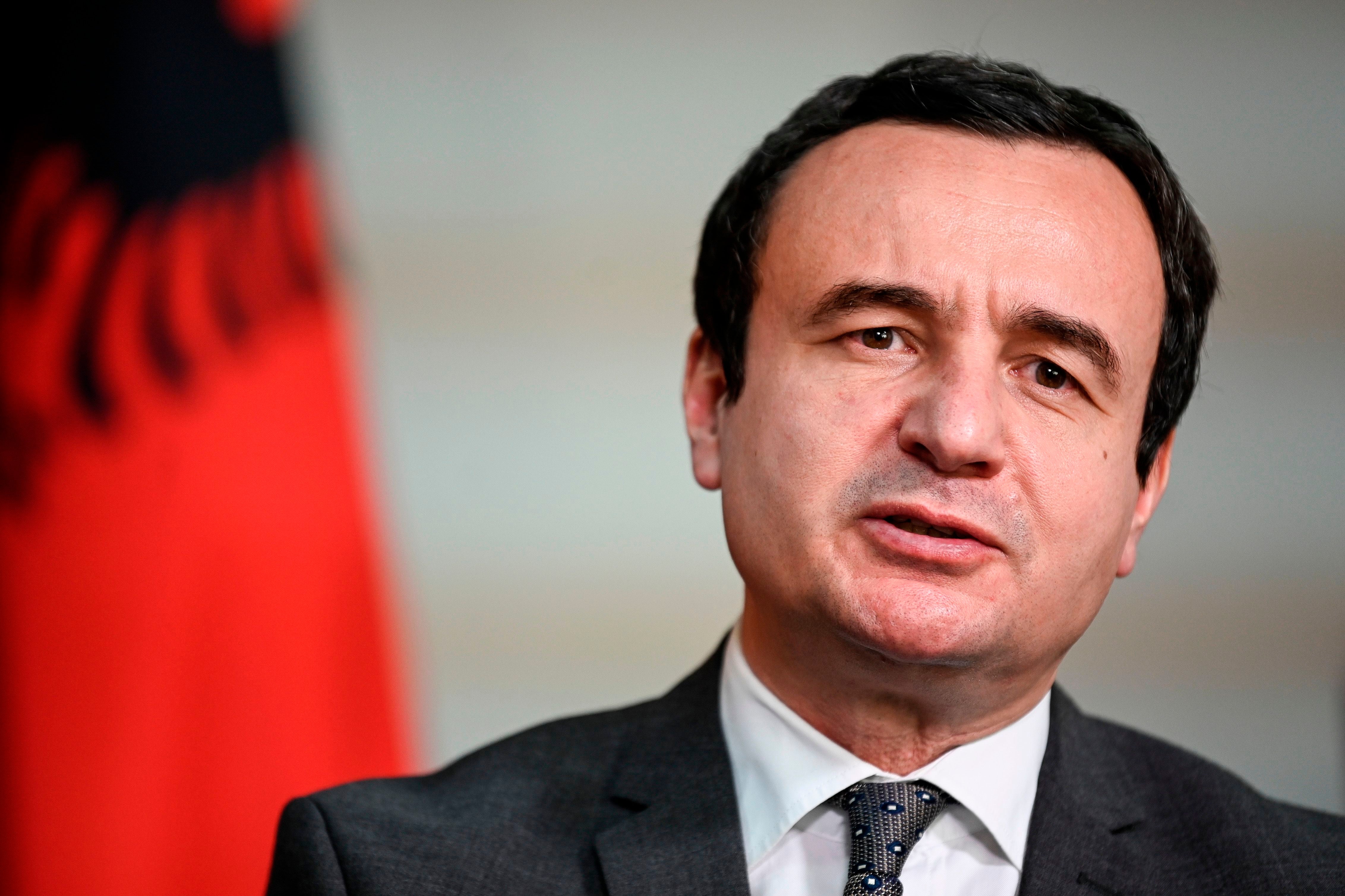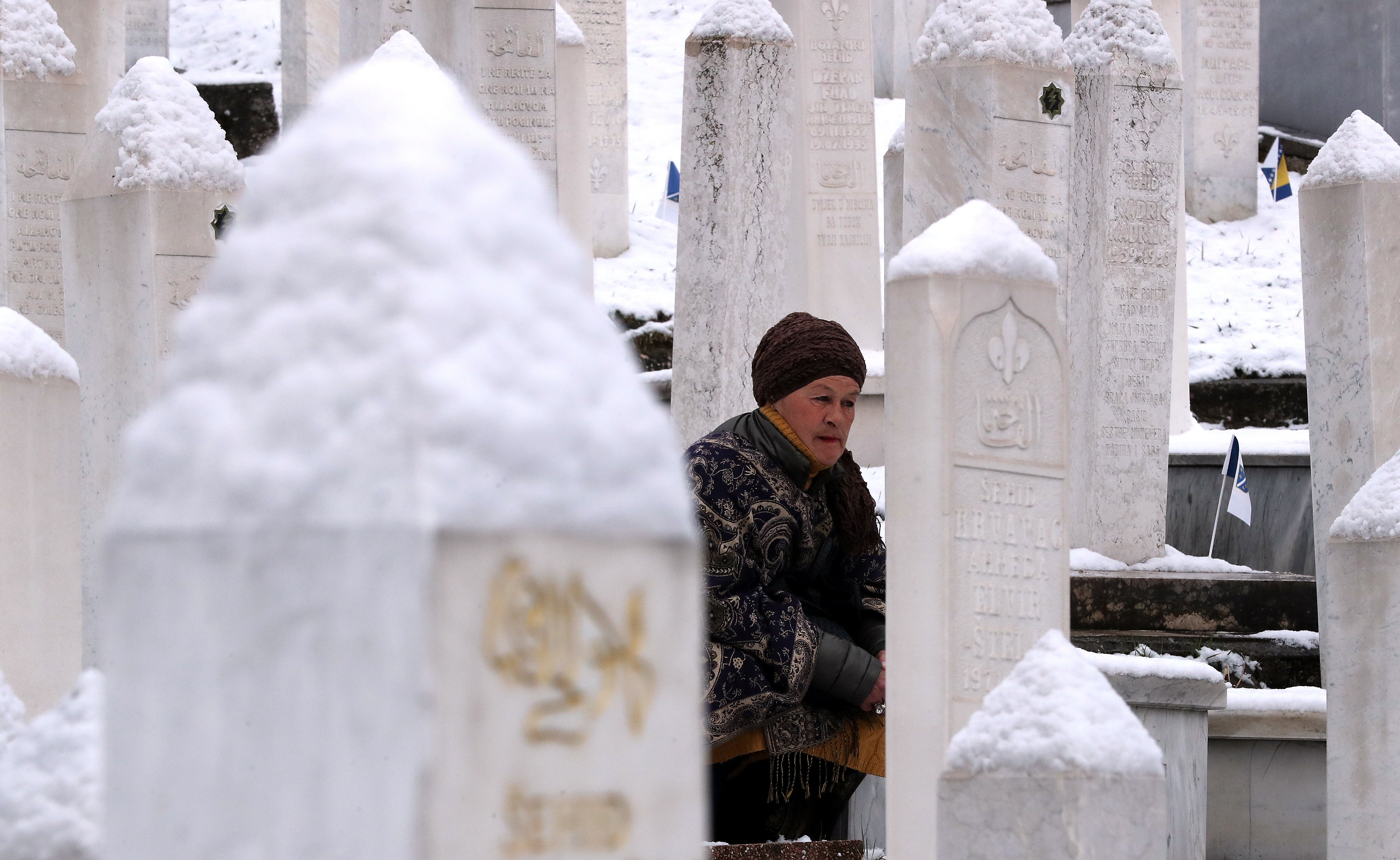Russia shows ‘genocidal intent’ in Ukraine war, Kosovo’s PM warns
Exclusive: Albin Kurti says the western Balkans is at heightened risk of military conflict because of the situation in Ukraine

Your support helps us to tell the story
From reproductive rights to climate change to Big Tech, The Independent is on the ground when the story is developing. Whether it's investigating the financials of Elon Musk's pro-Trump PAC or producing our latest documentary, 'The A Word', which shines a light on the American women fighting for reproductive rights, we know how important it is to parse out the facts from the messaging.
At such a critical moment in US history, we need reporters on the ground. Your donation allows us to keep sending journalists to speak to both sides of the story.
The Independent is trusted by Americans across the entire political spectrum. And unlike many other quality news outlets, we choose not to lock Americans out of our reporting and analysis with paywalls. We believe quality journalism should be available to everyone, paid for by those who can afford it.
Your support makes all the difference.The West must recognise Russia’s intention to commit genocide in Ukraine, the prime minister of Kosovo has said, as he warns his country may be next to face Russia’s expansionist aggression.
Albin Kurti, head of Kosovo’s government, told The Independent his country, which faced ethnic cleansing against Kosovar Albanians at the hands of Yugoslav and Serbian forces in the 1990s, believes a similarly devastating act is now underway in Ukraine.
“This Russian invasion, this military aggression is not political anymore. It is genocide. You see genocidal intent amounting to logistics and demographics,” Mr Kurti said.
“When I see what is going on in Kyiv it looks like this is another Sarajevo in the making,” he added.
Mr Kurti visited London this week in order to redouble his country’s diplomatic efforts to join Nato. The transatlantic military alliance intervened in the Kosovan war in 1999, with an aerial bombardment of Serbian targets after international efforts to broker peace broke down.
Following the invasion of Ukraine, Mr Kurti fears his country may face a proxy military conflict, as Russia flexes its political influence in Serbia. His warnings come after a build-up in military forces on Kosovo’s northern border, which included Russia-made tanks and MiG fighter aircraft late last year.
“I think the western Balkans is in even greater danger than the Baltic countries and Moldova, because there, Russia would have allocated part of its military strength. In the case of the western Balkans they wouldn’t have to do that at all, because Serbia could be added value to their military aggression”, Mr Kurti said. “We would like to join Nato as soon as possible.”
“I also insist that Nato be way more vigilant than it already is. In Moscow we have a powerful leader who is cutting his escape routes,” he said. “He’s not a person who seems ready to go to peace, he will rather seek expansion of war. That’s why we’re in danger.”
Kosovo is unlikely to achieve Nato membership quickly, however. While more than 100 countries do recognise Kosovo as an independent country, four Nato members do not. The country is also not a member of the UN, as a result of Russian objections. Mr Kurti has asked that, as a minimum, Nato forces consider adding to its military presence in his country.
Serbia has close ties with Russia, and performed joint military exercises with the country in October last year. Russian news agency TASS reported that Serbian president Aleksandar Vucic, said that the two countries held 96 joint drills in 2019. Most of the country’s weapons are imported from Russia, according to the CIA World Factbook.
Regional analysts have also noted that the two countries’ energy infrastructure and companies are also closely interlinked which could cause knock-on effects for Serbia’s economy in the wake of severe Western sanctions against Russia.
Mr Kurti said that, as of late last year, it appeared that Serbia, as Russia’s proxy, was “ready to attack” at the Northern border with Kosovo. Serbian troops at the border were inspected by Russia’s ambassador to Belgrade, Alexander Botsan-Kharchenko, along with senior Serbian politicians.
“When you deal with the Russian Federation and their proxies in the Western Balkans you can be shocked but never surprised, because all the time they give you proof rather than indications of their future attack,” Mr Kurti said.
Amid this escalation of a dispute over number plates, both Kosovo and Serbia were told to cool tensions by the EU and US.
Mr Kurti said that news reports showing Belarussian leader Alexander Lukashenko in front of a map which carved up Ukraine were directly reminiscent of reports of meetings between Mr Vučić and Russian president Vladimir Putin.

The Russian government, and president Vladimir Putin himself have compared the annexation of Crimea, with the situation in Kosovo. Serbian news outlet RTV reported Mr Vučić claimed that he and Mr Putin had discussed “hypocrisy in international relations” and using the north of Kosovo as an example during which the Serbian politician “showed him [the area] on the map”.
Serbia does not recognise Kosovo as an independent state, and, unlike other European states, has refused to impose sanctions against Russia in the wake of its invasion in Ukraine.
"They [Russia] were the only country not to have imposed sanctions against us in the 1990s," Mr Vucic said last week, according to a report from Reuters news agency. He added that Russia had supported Serbia in its “territorial integrity in the United Nations” by refusing to recognise Kosovo’s independence. “We must not forget that," Mr Vučić said.
Mr Vučić served as minister of information under Slobodan Milošević, the first sitting head of state to be tried with war crimes for his involvement in atrocities during the conflict in the Western Balkans.



Join our commenting forum
Join thought-provoking conversations, follow other Independent readers and see their replies
Comments